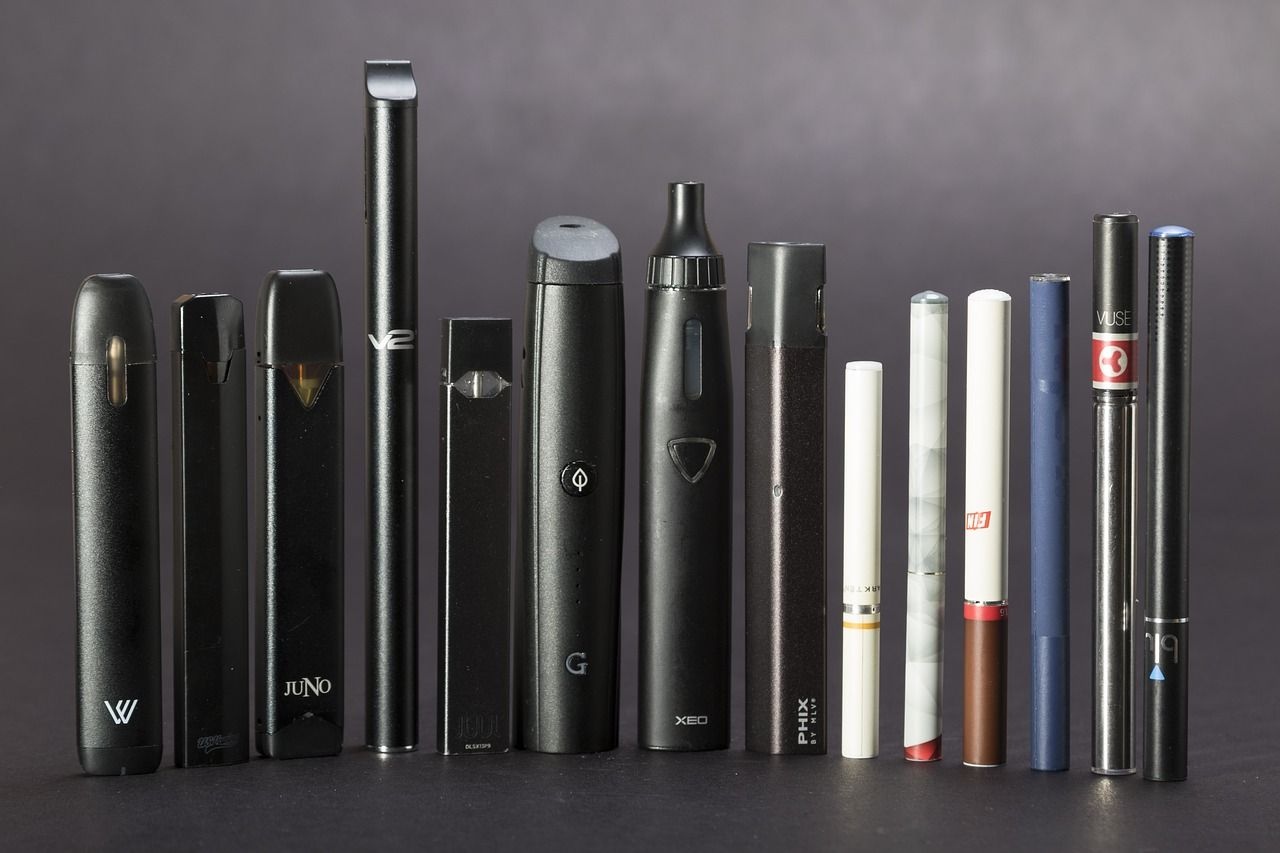
E-cigarettes are battery-powered devices used to heat nicotine-containing liquids into aerosols that are then inhaled. The devices come in a variety of shapes and sizes and have been growing in popularity among teens. (Photo by Sarah Johnson)
(New Philadelphia, Ohio) – The Tuscarawas County Anti-Drug Coalition is warning parents and educators about an electronic cigarette that is continuing to grow in popularity among young people.
An electronic cigarette, or e-cigarette, is a battery-powered device heats a nicotine-containing liquid to produce an aerosol that is then inhaled.
E-cigarettes are the most commonly used tobacco product among the nation’s middle and high school students. Specifically, JUUL is a brand of E-cigarette that is becoming more appealing to young people. Some suspect this could be due to its USB-like structure, rechargeability, colorful cases and appealing flavors.
The According to the Centers for Disease Control and Prevention (CDC), a JUUL E-cigarette has a high level of nicotine and a single JUUL pod contains as much nicotine as a pack of 20 regular cigarettes.
Tuscarawas County Ant-Drug Coalition Coordinator Jodi Salvo says reports indicate a widespread use of JUUL by students in schools including classrooms and bathrooms, which is alarming considering the known health risks associated with young people and tobacco use.
“The risk and health factors associated with tobacco use by adolescents are serious and can cause effects that last into adulthood. It is important that as teachers, parents, guardians and community leaders we continue to stay informed about current trends and fads among our young people to see success in keeping them on a healthy path.”
The coalition says evidence-based reports by the CDC support concerns surrounding the health risks associated with nicotine use during adolescence. Findings of those reports include that:
• The brain continues to develop until about age 25 nicotine can harm the developing adolescent brain.
• Nicotine can harm parts of an adolescent's brain that control attention, learning, mood and impulse control.
• Using nicotine in adolescence may increase the risk for future addiction to other drugs.
Other risks cited by the group include reports of children and adults being poisoned by swallowing, breathing, or absorbing E-cigarette liquid through their skin or eyes.
Additionally, the coalition says scientists are still learning about the long-term health effects of e-cigarette use, which means that today’s youth are essentially the ‘guinea pigs’ for JUUL and other E-cigarette companies.
More information on JUUL and E-cigarettes can be found via this PDF link from the CDC.
Information and resources for parents and guardians can be found on the U.S. Surgeon General's website.
